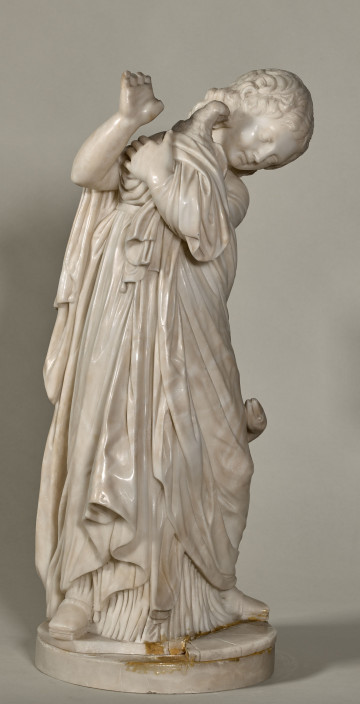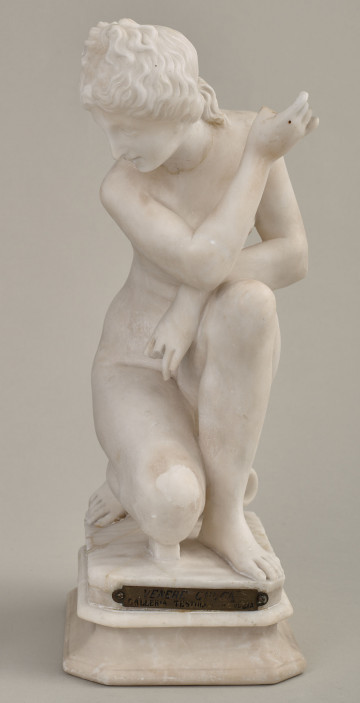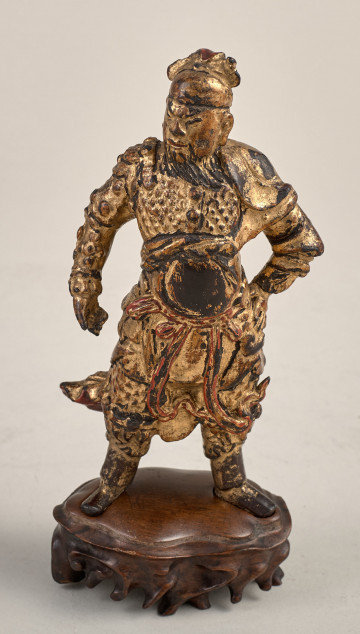
Girl with a pigeon
1st half of the 19th century
Castle Museum in Łańcut
Part of the collection: Sculptures
The Dying Gaul The alabaster statue of 'The Dying Gaul' is a reduced copy of an ancient Roman marble statue (height 93 cm) kept in the Musei Capitolini in Rome. The original was a Hellenistic sculpture from a multi-figural bronze group; the monument was erected in the sanctuary of Athena in Pergamon, probably around 228 BC and attributed to the sculptor Epigonos. The statue commemorated the victory of the Pergamon ruler, Attalos I, over the Gauls. The marble statue was found in Rome, before 1623, presumably during the construction of Villa Ludovisi. Pope Clement XII acquired it for the Capitoline Museum. The statue depicts a mortally wounded naked Gaul sitting on a shield, struggling to support himself on his right arm, with his head resting on his chest. A sword and a broken trumpet lie next to the wounded man. A torque (a type of necklace worn by the men of the Gallic tribes) is slung around the man's neck. In reduced sizes, the famous antique sculpture was often copied in the 17th and 18th centuries, mainly in marble and bronze. The Łańcut statue lacks the wound mark under the right breast of the Gaul that appears in the original statue. The man's left hand and left leg are missing. The creator of the statue is unknown; it could have been an Italian sculptor. The statue was made in the 1st half of the 19th century. It comes from the collection of the Tarnowski family in the Dzików Castle, from where it was taken over to the Museum in Łańcut in 1950. Barbara Trojnar
Dimensions
height: 24.5 cm, width: 40 cm
Object type
Sculptures
Technique
sculpture
Material
alabaster
Origin / acquisition method
decyzja administracyjna
Creation time / dating
Creation / finding place
Owner
Castle Museum in Łańcut
Identification number
Location / status

1st half of the 19th century
Castle Museum in Łańcut

1800 — 1850
Castle Museum in Łańcut

Castle Museum in Łańcut
DISCOVER this TOPIC
Castle Museum in Łańcut
DISCOVER this PATH
Educational path